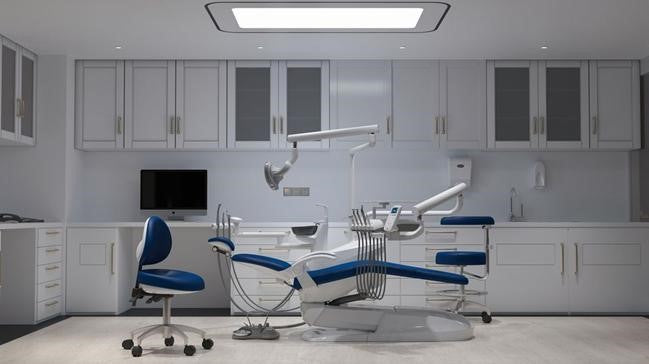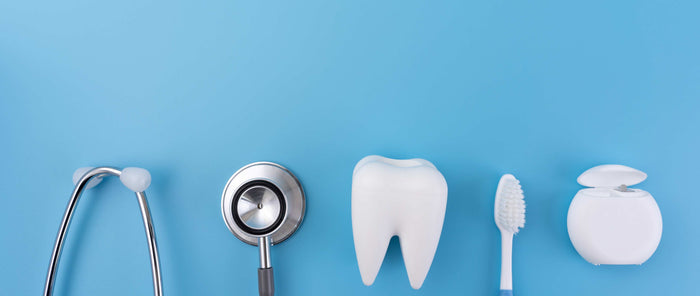Koite Health signs Lumoral® deal with Dental Warehouse – UK’s leading distribution and fulfillment warehouse

Finnish health technology company Koite Health Oy has signed a distribution agreement with Dental Warehouse Ltd. of the UK. Following the accord, Dental Warehouse will offer UK consumers and oral health professionals Lumoral® – the latest technology for improved oral health self-care.
Dental Warehouse is the leading distribution and fulfillment warehouse in the UK. The company sees Lumoral as a strong addition to its product portfolio, giving it a competitive edge in the dental industry.
According to Alexandra Davis from Dental Warehouse, Lumoral’s unique technology – developed in collaboration with Finnish scientists and medical professionals – offers innovative plaque-targeting treatment capabilities, setting it apart from traditional oral care products.
– The technology addresses plaque-related issues promptly, helping prevent severe oral health problems such as cavities and gum disease. Davis highlights that Lumoral caters to dental professionals and proactive consumers, expanding its target market.
Koite Health Ltd. will provide Dental Warehouse access to innovative and unique technology for dental plaque-targeted treatment through the agreement.
– This can help differentiate us from competitors and attract customers seeking advanced oral care solutions, Davis says.
Comprehensive oral health management
Poor oral health is a global concern that has prompted even the World Health Organization (WHO) to react. WHO estimates that oral diseases affect nearly 3.5 billion people globally. In 2022, the World Health Assembly adopted the global strategy on oral health with a vision of universal health coverage for oral health for all individuals and communities by 2030.
Poor oral health also affects children. The Oral Health Foundation of the UK called in March for urgent action after a new report by the Office for Health Improvement and Disparities highlights a “catastrophic rise in childhood tooth extractions”.
Figures released by the UK-based charity reveal an 83% increase in 0–19-year-olds admitted to hospital for tooth extractions under general anaesthetic due to tooth decay. There were 26,741 tooth extractions on 0–19-year-olds due to tooth decay between 2021-2022.
According to the report, significant disparities exist between areas within the UK. For example, Yorkshire and the Humber rates are over five times that of the East Midlands.
Alexandra Davis estimates that the UK dental market will reach a value of £9.62 billion in 2022. 46% of UK adults have visited a National Health Service (NHS) dentist in the last 12 months. 57% of people who have visited a dentist in the last five years received a general examination or check-up. 70% of British citizens use self-payment for their dental treatments.
Davis highlights a continuous need to improve prevention among patients in the UK regarding the oral health of adults and children.
– While dental professionals emphasise the importance of preventive care, there are still areas where patients can benefit from better understanding and implementing preventive practices, she continues.
This is where new oral health-enhancing technologies such as Lumoral come in handy.
Lumoral is changing the future of dental care at home
Research shows that Lumoral's antibacterial aPDT phototherapy technology effectively eliminates harmful bacteria in the mouth while treating advanced gum disease. Similar light-activated antibacterial treatments have already been used in dental clinics. However, the problem has been the cost and frequency of these treatments to provide sufficient efficacy.
Lumoral is a health technology product with a medical device status for treating and preventing oral diseases at home. Many dentists and the Finnish Association of Dental Hygienists already recommend the new teeth cleaning method, which improves traditional oral hygiene. Lumoral treatment does not replace mechanical oral hygiene but enhances it. Lumoral is also available for children aged four and above.
– Solid scientific evidence enhances the understanding of Lumoral's efficacy and showcases its benefits in treating periodontitis. Scientific backing helps to instill confidence in the effectiveness of Lumoral and contribute to its credibility within the dental industry, Davis says.
Preventive health care, which includes using the antibacterial Lumoral method, will quickly pay for itself, bringing significant savings to society. This applies not only to dental care but to the entire healthcare system. Lumoral supports regular mechanical dental hygiene, helps achieve gum health, and prevents inflammation when regular dental hygiene is insufficient.
Dental Warehouse aims to provide its customers with the best possible modern treatment for oral diseases. Lumoral will be offered through dental practices through the Dental Warehouse website.
– This novel technology can appeal to individuals or organisations seeking advanced solutions in oral health. Dental plaque is a widespread issue that affects a large population. David highlights that Lumoral's ability to treat dental plaque efficiently can entice individuals and dental professionals looking for an effective tool to address this common oral health problem.
Davis continues that Lumoral's plaque-targeting capabilities align with the increasing emphasis on preventive healthcare. By proactively addressing dental plaque, Lumoral may help prevent more severe oral health issues, such as cavities and gum disease, without negatively affecting oral bacteria balance. This preventive aspect can attract those interested in maintaining optimal oral health.
According to Davis, increased awareness of oral health and hygiene drives the growing demand for advanced oral care solutions. Lumoral, with its innovative technology and ability to provide comprehensive oral health management, may meet this demand and be seen as a valuable addition to the market.
Taking oral health to a new level
Sakari Nikinmaa, Koite Health's CEO, says that partnership with the Dental Warehouse team is essential for Lumoral, enabling the company to serve dental professionals and their patients better in the UK.
– By working with Dental Warehouse, we can take oral health to a new level in the UK and provide patients and consumers with the best possible treatment experience and outcomes. Koite Health's clinical results and the expertise of Dental Warehouse are perfectly combined with Lumoral's unique features and efficiency, says Nikinmaa.
The global oral healthcare market is estimated to be worth €470 billion. Koite Health aims to capture a share of it with their Lumoral solution. The company already has thousands of satisfied customers and ambitious future growth targets. Now, the aim is to make Lumoral a major global brand in the oral healthcare market through international partnerships.
– Our strategy is to partner with industry leaders to raise awareness among professionals about the Lumoral product and its benefits and to build a global sales structure to secure product availability globally, says Nikinmaa, one of the founders of Koite Health.

Sakari Nikinmaa, Co-founder and CEO of Koite Health Oy.


